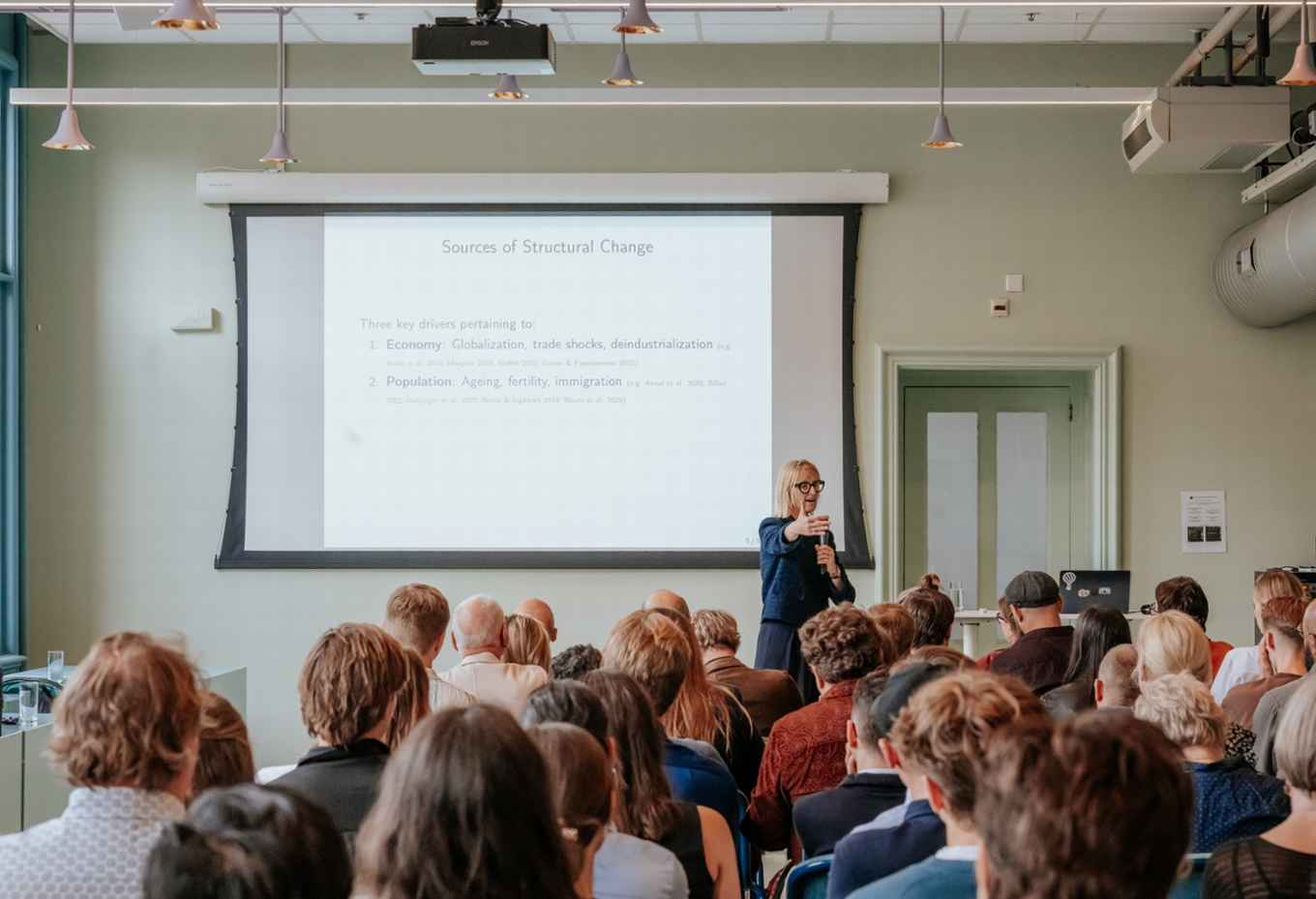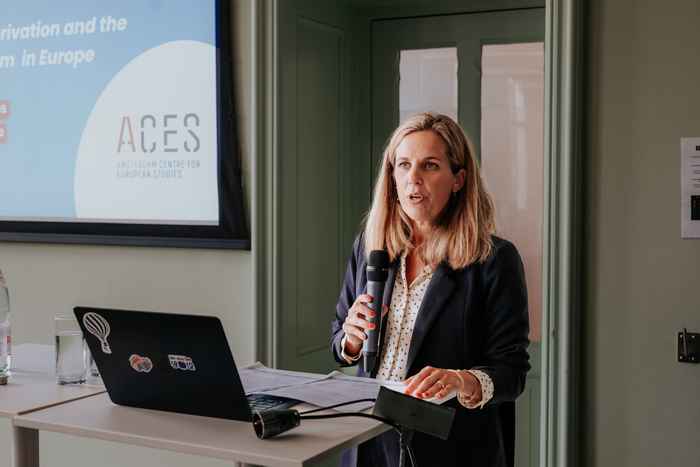ACES Marked the Opening of the Academic Year with Lecture on Public Service Deprivation and the Rise of Populism in Europe
Professor Catherine E. De Vries examined how public service deprivation shapes political discontent and the rise of populism across Europe
20 September 2025

Held at the University of Amsterdam, the event brought together scholars, students, and members of the wider public to reflect on how the accessibility and quality of public services influence democratic legitimacy and political behaviour in Europe. The lecture opened the new academic year at ACES with an invitation to consider how institutional change, inequality, and state capacity shape Europe’s contemporary political landscape.
Understanding the Geography of Discontent
In her lecture, Public Service Deprivation and the Rise of Populism in Europe, Professor De Vries explored how long-term disinvestment in essential public services contributes to political dissatisfaction and the growing success of far-right and populist movements.
Drawing on comparative evidence from several European countries, she argued that public service deprivation, the decline in access to healthcare, education, transport, and local infrastructure, plays a significant role in explaining patterns of political discontent. These dynamics, she noted, are not only material but also perceptual: citizens experiencing service decline often adopt zero-sum views of competition over scarce resources, while far-right parties strategically frame this decline as the consequence of immigration or elite neglect.


The lecture demonstrated how spatial inequality and the retreat of the state interact to shape political attitudes and electoral outcomes, offering new insight into the geography of populist support across Europe.
Reflections on Democratic Legitimacy
Reflecting on the lecture, Asli Unan, Assistant Professor of European Political Economy in the Department of European Studies and co-leader of the ACES Thematic Group Contested Economic Challenges, noted that the lecture compellingly brought the state back into debates on political discontent across Europe, highlighting how citizens’ experiences of service decline shape democratic legitimacy. She emphasized that understanding the link between objective and perceived deprivation remains crucial for explaining why grievances in European societies often channel toward the populist right rather than toward pro-redistribution politics. As Professor De Vries suggested, these dynamics reveal how state capacity and credibility remain central to the future resilience of European democracy.


Setting the Agenda for the Academic Year
The event reflected ACES’s mission to advance interdisciplinary research and dialogue on Europe’s political, social, and economic challenges. By foregrounding questions of governance, inequality, and public trust, the lecture underscored the importance of evidence-based scholarship in understanding the transformations shaping European democracy.
For an overview of all the photo's (shot by Unmaskphotography) during ACES' opening lecture, please visit the following ink: